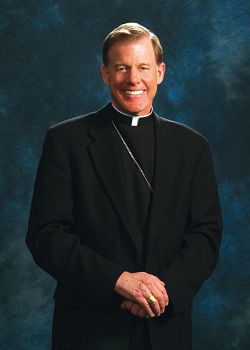Many roadblocks exist to legal immigration
SALT LAKE CITY — In discussions of undocumented immigrants, the question is often asked: Why don’t they just get in line? That question was prominent among the supporters of Rep. Steven Sandstrom’s HB70 at the Utah legislative hearing last week. The simple answer is that there is no line for the large majority of those who have come to Utah without authorization or overstayed their visas. A Jan. 6, 2011 survey by The Immigration Forum found that 98 percent of those surveyed indicated that they prefer to live and work lawfully and would have entered lawfully if there had been such an opportunity. Lawful permanent residency may be obtained by three means according to United States immigration law. 1. A qualified family member in the U.S. may petition to bring a foreign-born family member to the country. A U.S. citizen may petition for lawful permanent residency for their spouses, parents, children or siblings. Lawful Permanent Residents in the country may petition for their foreign-born spouses and unmarried children. To do so, sponsors must demonstrate an income level above the poverty line and must commit to financially support the foreign-born family members so that they do not become a public charge. However, there are numeric limitations on most of these family-based categories, resulting in backlogs for entry that often range anywhere from five years to nearly 20 years. 2. Immigrants fleeing political persecution or a well-founded fear of future persecution on account of their race, religion, membership in a particular social group, political opinion or national origin may seek political asylum in the U.S. or qualify for refugee status. They must meet a high evidentiary burden and even then, there is an annual cap on the number of refugee admissions to the U.S. that is typically set between 70,000 and 80,000. Most Utah Immigrants are fleeing poverty in their home countries, not political persecution and thus do not qualify for asylum. 3. There are various immigration categories for workers to be sponsored by a U.S. based employer to come to the U.S. to work and live lawfully. These categories are limited to multi-national executives and professors with advanced degrees and narrowly-defined, specialized workers. The vast majority of the undocumented living in Utah does not qualify in such categories. The demand here has been for agricultural, meatpacking and landscaping services as well as construction industries. There are only 5,000 green cards available annually for unskilled workers in the whole U.S.! The H-2A (seasonal agricultural) or H2B (seasonal non-agricultural) visa programs are alternatives. Requirements for H-2A visas are onerous and H-2B visas are capped annually at 66,000 for our whole country. Both only provide temporary status to work for a U.S. employer for one year. They are insufficient to fill our demand for such labor. So, there really is no line for the undocumented living among us. And yet we need their labor and they need to live without fear or oppression, including economic oppression. That is why I join my fellow U.S. Catholic Bishops in support of comprehensive immigration reform at the federal level. We believe that immigrants should come to our country legally but continue to point out that our current laws do not allow families to be reunified in a timely manner and do not reflect our demand for labor. In the meantime, we need to let our state legislators know that passing enforcement only legislation simply adds to the burdens of those whose labor truly helps our economy. Our state funds and legislators’ time would be better spent pressuring Washington to enact Comprehensive Immigration Reform. I believe that laws like Arizona’s SB 1070 only make matters worse by creating more fear among the immigrant population, placing a wedge between local law enforcement and the community, punishing the very people who support our life style and involving the state in matters that are properly the federal government’s jurisdiction. I hope Utah "gets in line" with the other states in a united effort to persuade Washington to act in this vital matter.
© Copyright 2024 The Diocese of Salt Lake City. All rights reserved.


Stay Connected With Us